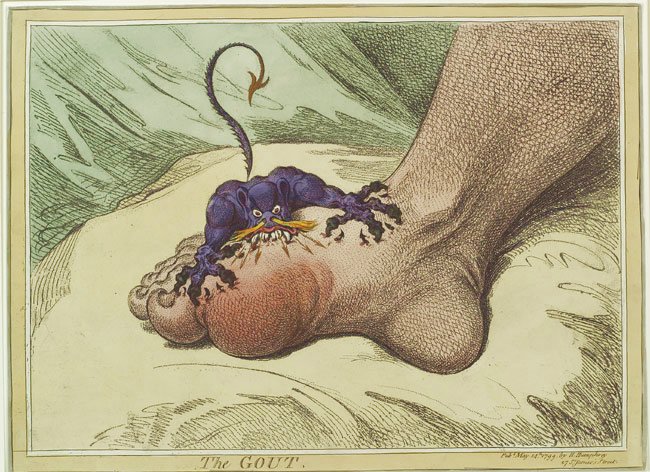Blogging minister of the crown, Tom Watson, writes about something he calls digital levelling. This seems to be a party political concern, that the apparently better-funded Conservative Party is streaking ahead in the fight for attention in the digital world. And so, Tom is asking for ideas to help the Labour government respond to the digital propaganda gap he thinks he sees.
So far, so unremarkable. But I think there’s something bigger at work here, and which is reflected in his appeal for humour for Labour’s political advertising.
Tom clearly thinks there is the potential for a massive democratisation of participation in politics (which may or may not coincide with an imminent general election). I agree with the theory about participation. And, I am in favour of lots of people making pictures that take the piss out of power and personalities (the Conservatives, in Tom’s case).
However, in the recent past, satire of the sort Tom is asking for was generated by paid employees of the print media and circulated through it. People tended to understand the rules in regards to the political leanings of the publication and then picked their brand of poison at the expense of the opposing political party or social group.
Political and social joke-makers survived by selling their wares into the papers. So, you’ll understand that when I say (deep breath) newspapers are dying as an economically viable, mass market circulation vehicle for the distribution of news, comment and jokes, I take no pleasure in it. The radical reduction in the cost of distribution for information has destroyed their effective monopoly. Eventually, it will do in their existing advertising-based business model, too.
One of the interesting questions – for me – is going to be who pays for this entertaining and socially healthy satire – and whether anyone will pay for it at all. The vast majority of us are self-employed, non-staff workers and so, although plenty of people will be able to pitch in, will there still be room for someone to make a living from it?
If you want examples of this growth in digital reader participation, you have only to look at the growth of Tim Montgomerie’s Conservative Home (an influential lobby group for the Conservative Party grassroots membership), Iain Dale’s Diary or, Guido Fawkes. On the other side of the fence, you have Derek Draper’s new LabourList, Liberal Conspiracy and Tom’s site. There are, of course, many other good ones too.
It seems that with the decline in the commercial, more or less neutral print market, it is inevitable that political and joke imagery will become very much more partisan, as the parties ask directly for work to bash the other side. Both sides will clearly be going straight into the digital world and in doing so, will be cutting out the old middlemen and the people who made a living from them.
This poses an old dilemma for the would-be satirist. How does one earn money to eat? And it is here that Mr Gillray’s ghost makes his appearance.
James Gillray, arguably Britain’s greatest, dead satirist, had the same dilemma back in the late 1700s – how to make a living from his skill at a being a visual smartarse. The following quote, is attributed to the artist when he was asked why his drawings were rude about the Whigs (an early non-Conservative party). The quote comes from Spartacus Schoolnet.
“they are poor, they do not buy my prints and I must draw on the purses of the larger parties”
So, are we going to see people like me directly employed by political factions again in the future? And if that happens, will it be a good or a bad thing? Is it a return to the roots of cartooning and other fun and nastiness, or a step away from the at least economically independent media industry which replaced it, possibly for good reason?
Or will no one pay at all – so that we’ll die out. Your answers on digital parchment or tablets of stone please.


There will always be a market for this material. Though video satire and jokes may be the way to go. Time to re-skill?